Netflix just dropped their latest edition of Chef’s Table, with four brand new episodes that focus solely on all things meat, smoke, and fire. The art of the barbecue takes center stage in this spinoff and features a quartet of chefs, each bringing their own take, from ancient techniques to avant garde experimentation. In Chef’s Table: BBQ, we once again travel the world – from Lexington, Texas, to Sydney, Australia, to Charleston, South Carolina, and finally to Yaxunah, Mexico – in search of some insight into the minds that have dedicated themselves to this mouthwatering craft.
Umapagan Ampikaipakan: I’m obsessed with this series. I’ve seen all six seasons of the original, the French spinoff, and now this mouthwatering look at barbecuing, and I am never not in awe of the stories that are told here. The thing that Chef’s Table does better than any other food show is just how deep it dives into the mind of a chef. This isn’t a show about food and cooking. This is a show about individuals. One that is built around the assumption that cooking is a physical, emotional, and intellectual endeavour, and that it takes a unique sort of person, driven by passion and fueled by obsession, to reach the dizzying heights that these chefs have.
If that sounds familiar, it’s because David Gelb, the show’s creator, was also the guy responsible for the incredible Jiro Dreams of Sushi. If anything, Chef’s Table really is the spiritual successor to that documentary.
Bahir Yeusuff: I didn’t know that! If you haven’t yet seen it, Jiro Dreams of Sushi is very much a documentary about the obsessions of one man and his craft. It is incredibly Japanese. “I don’t care that my shop is small, and that I make just enough money to get by, but my tamagoyaki must be perfect so you, my apprentice, must spend years making nothing but eggs, before I let you anywhere near anything else.”
I have a weird relationship with the Chef’s Table series, in that I am so in love with everything the series covers, but only for the first couple of episodes. Then my focus and attention start to wane. Everything you said I agree with, but somehow, whether it be the characters they choose, or the story threads they decide to follow, something about the series just makes me zone out after the second episode.
UA: I think that has to do with the intensity of every episode. This is a lot of show. Every hour is so dense and requires your complete attention. I don’t know about you, but this is not a show that you can watch while distracted by your phone. Each story is so tightly woven that if your mind wanders, even for a second, you might miss a crucial character moment. And I say “character moment,” because the series approaches each and every chef as though they were a character. There’s a plot. There’s a narrative. There’s a story arc.
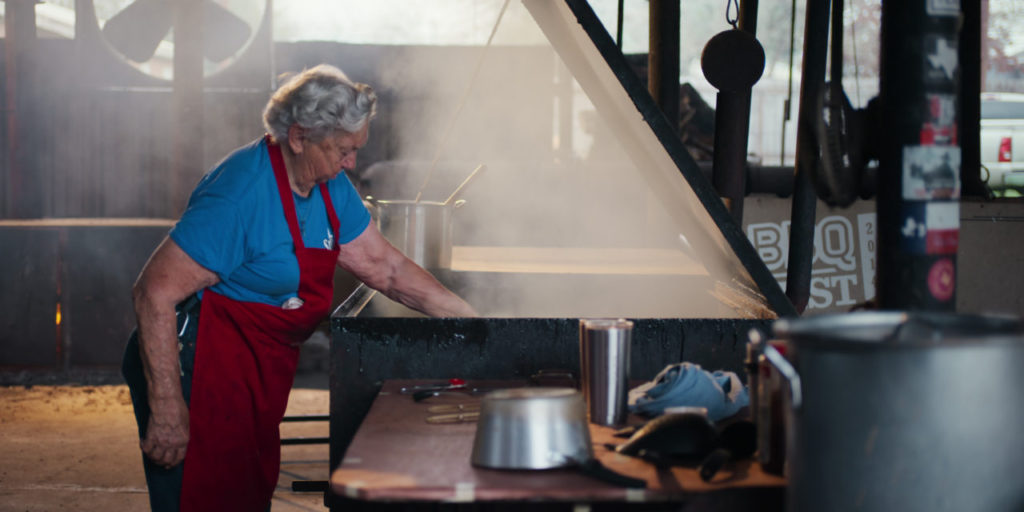
BY: The title really does point to the chef as a person and not just as someone who cooks amazing food. The series eschews the big time famous guys and choses to focus instead on the stories of amazing chefs. The chef’s chefs if you will. This isn’t a show about how a chef grills a piece of fish, but, as demonstrated in episode two of Chef’s Table: BBQ, the chef’s journey to thinking about grilling fish. This series is a meditation into the mind of a chef and how their experiences may have informed their decisions in the kitchen.
It’s also worth noting the idea behind the title. The chef’s table is generally a very European (and subsequently American) notion, where a chef invites you into his kitchen so you can witness the performance; the dance of the kitchen. And when you’re on the chef’s table, you generally don’t order. Your meal is left at the chef’s discretion. It is a sign of respect for you, the guest, and a sign of respect for the chef, that you are here, at HIS table, eating something that he has prepared for you. The chef’s table is THE seat in the restaurant.
UA: And I think this series does a great job at recreating that feeling. Of putting you right there on the front lines. It is something that they’ve refined over the years, and the four episodes of Chef’s Table: BBQ really are the pinnacle of that. Every one of these episodes are absolutely superb. From the chef’s they’ve decided to feature, to the way they’ve shot their individual stories, each one is distinct, and different, and gives you a complete picture on just how varied a craft barbecuing can be.
Did you find yourself drifting away from this season?
BY: I did drift in this season too, but in my defence, I had just eaten a big barbecue lunch and was settling down in front of the TV in my air-conditioned bedroom, so that may have had something to do with it.
But I do agree with you regarding who they decided to feature. When we think of barbecue, we’re generally thinking of the American style barbecue. The big honk of meat over fire or coal. The slathering of rubs, and spices, and sauces. And that’s what you get when it starts. The first episode centres on the legendary pitmaster at Snow’s BBQ in Texas, the 85-year-old Tootsie Tomanetz. From there, the series also introduces audiences to a chef in Sydney who barbecues his salads, and a mother from Mexico that cooks in a pit. The series really stretches out the definition of barbecuing in an expansive way. These other forms may not be top of mind whenever barbecue comes up, but it still fits within the understanding of the word. What these other chefs are doing may not be immediately recognisable as barbecuing, but it is, all of it, amazing.
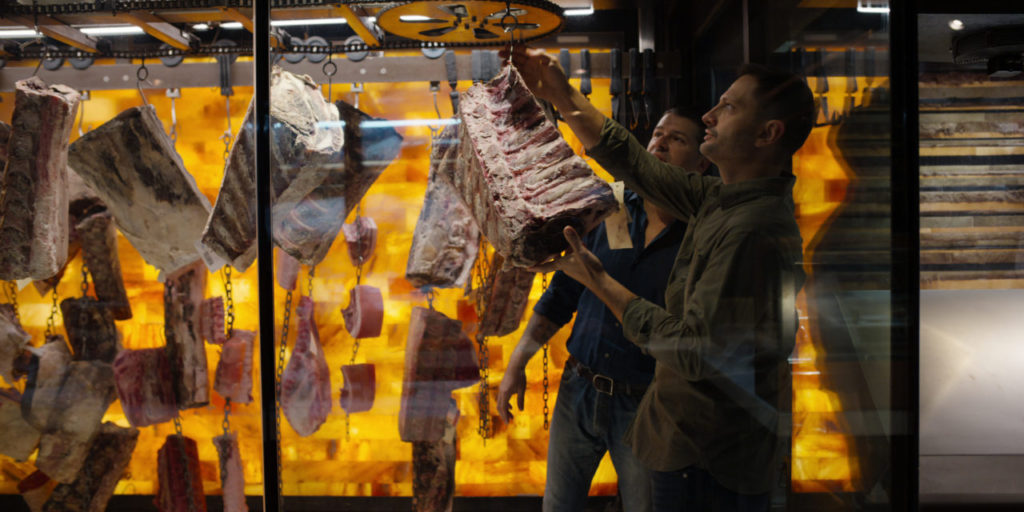
UA: My favourite episode was the one on Lennox Hastie of Firedoor in Sydney. There was something about his story that I found incredibly moving. That journey of his, from culinary school, to his disillusion with the French method, to meeting Victor Arguinzoniz and apprenticing at the acclaimed Asador Etxebarri, to being shunned by his mentor, before finally building something that was new, and unique, and his alone. His culinary journey was littered with so many pauses, and stops, and failures, that it would have meant the end for someone lesser.
Here, Lennox’s story is a great look at what makes a genius. Yes, he is inspired. Yes, he is one in a million. But he also works longer and harder than anyone else. We often ascribe a lot of inexplicable qualities to those we consider to be geniuses, but the one thing that often gets overlooked is the sheer amount of effort and perseverance that goes into it. (I am also going to start grilling my salads from now on!)
BY: There is a great story in that episode where Hastie is talking about grilling caviar. He tells us that it had taken him years to figure out that he needed a piece of seaweed to make the grilling work. It’s those little discoveries that may get easily attributed to him being a “genius,” but the desire to grill caviar in the face of contrary comments, and the years of experimenting to get right, is what true mastery of a skill requires.
For me, it was Tootsie’s story from Episode 1. Her personal life is, in itself, a Lifetime movie. She’s lived through so much, she’s seen and done enough that she could step back and retire, and know that she had led a full life. But here she is, at 85, still staying up all night to tend to these meats that stay on the pits for 8 to 10 hours. That was just awe inspiring. My back hurt just watching her shovel all of that coal!
Also, the beauty shots of those slabs of beef brisket were almost pornographic. Slow motion, in the shadows, with just the right amount of light glistening off the still hot meat. Good God, my mouth is watering just thinking about it.
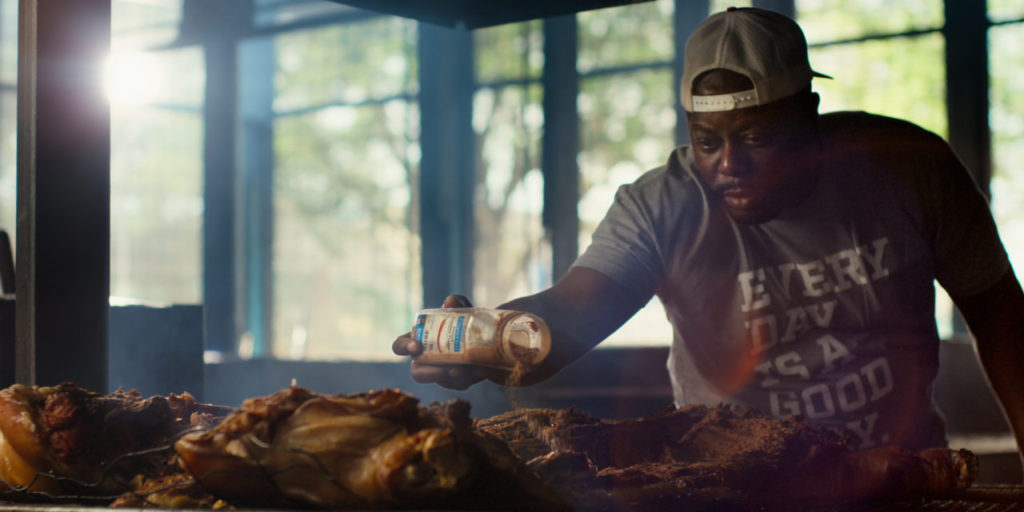
UA: This is also the only cooking show that makes me cry. I have a genuine emotional reaction. It comes from the love that these individuals have, for their craft, for the ingredients that they use, for the care they take in serving this food that they have so painstakingly created. But it’s also in the way these stories are framed, in how honest each one of these chefs are in sharing every aspect of their respective journeys. No matter how painful. They too are aware of just why they’re doing this. They’re documenting their stories for posterity. Because Chef’s Table, in my opinion, is as much a historical document as it is a piece of entertainment.
BY: And that is made quite apparent in Episode 4 of Chef’s Table: BBQ, where we meet Rosalia, a Mexican/Mayan woman who cooks in the traditional Mayan form of placing a pot of meat in a pit. Rosalia is constantly talking about the Mayan culture, of how it’s being forgotten, and her fear of it being lost to the march of time. This lady – Michelin star chefs travel far and wide to sit in her home and eat her food – is concerned about the loss of, not only the food of the Mayan people, but the Mayan culture as a whole. It is heartbreaking to think of all the different cultures (and foods) that the world has lost because someone has passed away and had been the last remaining link to it.
Of course there is a concern with a show like this that there will now be a whole host of people trampling over the Mexican countryside looking for individuals like Rosalia. And while that can be horrible, the upside is that now, not only will other Mexicans know of her and her culture, but the rest of the world will too.
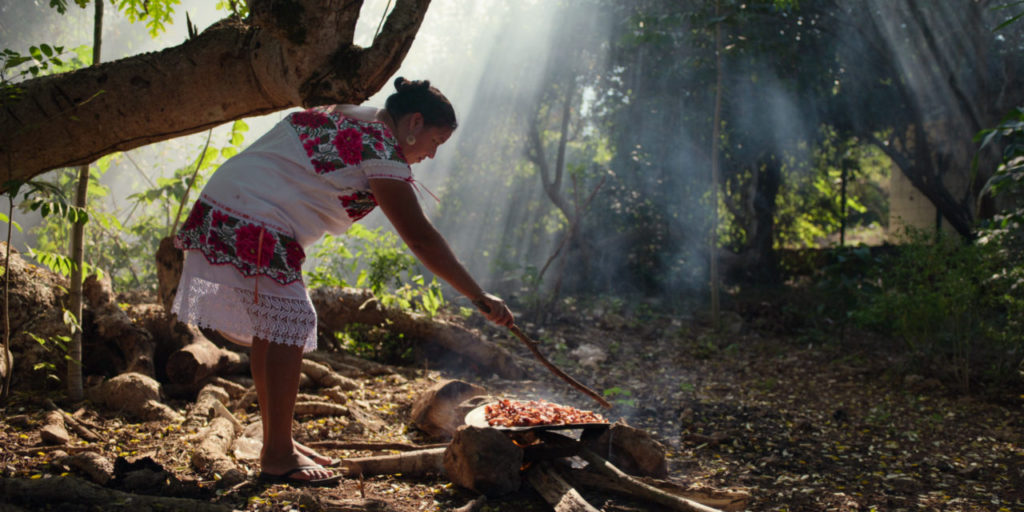
UA: I don’t know about you, but I’m so tired of food shows in which some celebrity chef parachutes into some village in Indonesia, speaks to a few locals, learns how to make nasi goreng, and then buggers off with little to no exploration of the history and culture behind the cuisine. Sure, there’s some lip service here and there, but those shows are so templated that it feels like they’re just doing it for the sake of it. Because they need to keep things churning. There is also a faux excitement to the tone of those shows. I mean, everyone, everywhere, knows what nasi goreng is, so there’s no need to pretend like it’s some kind of undiscovered cuisine.
By focusing on the chefs and their stories instead of just giving us beauty shots of food, Chef’s Table does stand out from almost everything else on television. What’s more, every episode of Chef’s Table is so consummately put together that it makes so many of those other shows feel lazy. This is a series that knows its important without ever coming off as being self-important.
BY: We generally talk about and assign TV genres with ease. Reality TV, documentary, magazine show, drama, action, comedy, and any number of permutations in between. Chef’s Table doesn’t really fit into a specific category. It’s not reality TV, but it is reality. It isnt, strictly speaking, a documentary, but it also is. There’s a beauty in it’s production, as formulaic as it has now become – a lot of beauty shots, a lot of subject narration, a lot of slow motion. It isnt as off the cuff as our other favorite food based shows The Chef Show or Somebody Feed Phil. But for this series, the formula doesnt stand in it’s way. The formula isnt what you see.
The formula is there to best deliver and serve the subjects (the food) and its characters (the chefs). Yes it is produced, and for the jaded amongst us, maybe a little over produced. But if you can look past that, and listen, the stories these people are telling are worth listening to. The story of the 85-year-old who still shovels her own coal. The story of the jaded Englishman who goes to Spain and finds his second wind. The story of a black man who is constantly reminded that he’s not going anywhere in life. The story of a mother hoping for a future for her culture. And all that delicious, gorgeous food that’s cooked over a fire.
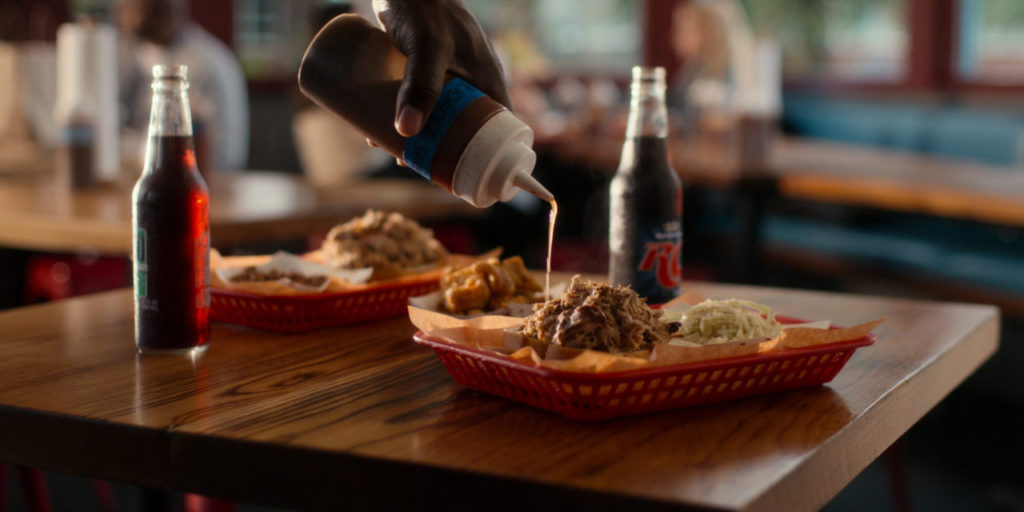
UA: Chef’s Table: BBQ (and Chef’s Table in general) is the kind of series that makes me feel excited to be alive. By taking us everywhere, by showing us just what all these individuals are doing, and how each one is changing the world in his and her own small way, this is a series that knows where to find joy and how to channel it. When I see how Tootsie is changed by all of the love and attention she gets everyday from complete strangers, and how it validates her life’s work, it makes me believe in the good of this world. Or the glee in Rosalia’s face when she talks about the time Noma came to town. Or when Rodney Scott is standing on that stage after winning his James Beard award, composes himself, and simply says: “How y’all doing?” It’s beautiful. It’s moments like those that make this show shine.
Chef’s Table: BBQ
Netflix, Volume 1, 4 episodes
Showrunner: David Gelb
Cast: Tootsie Tomanetz, Lennox Hastie, Rodney Scott, and Rosalia Chay Chuc

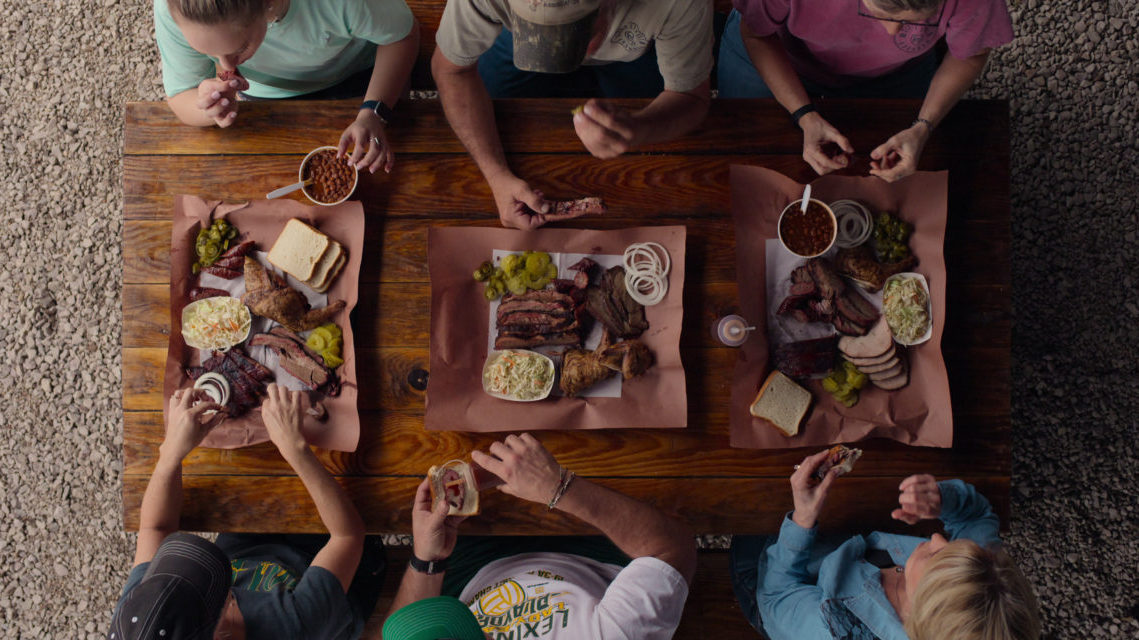
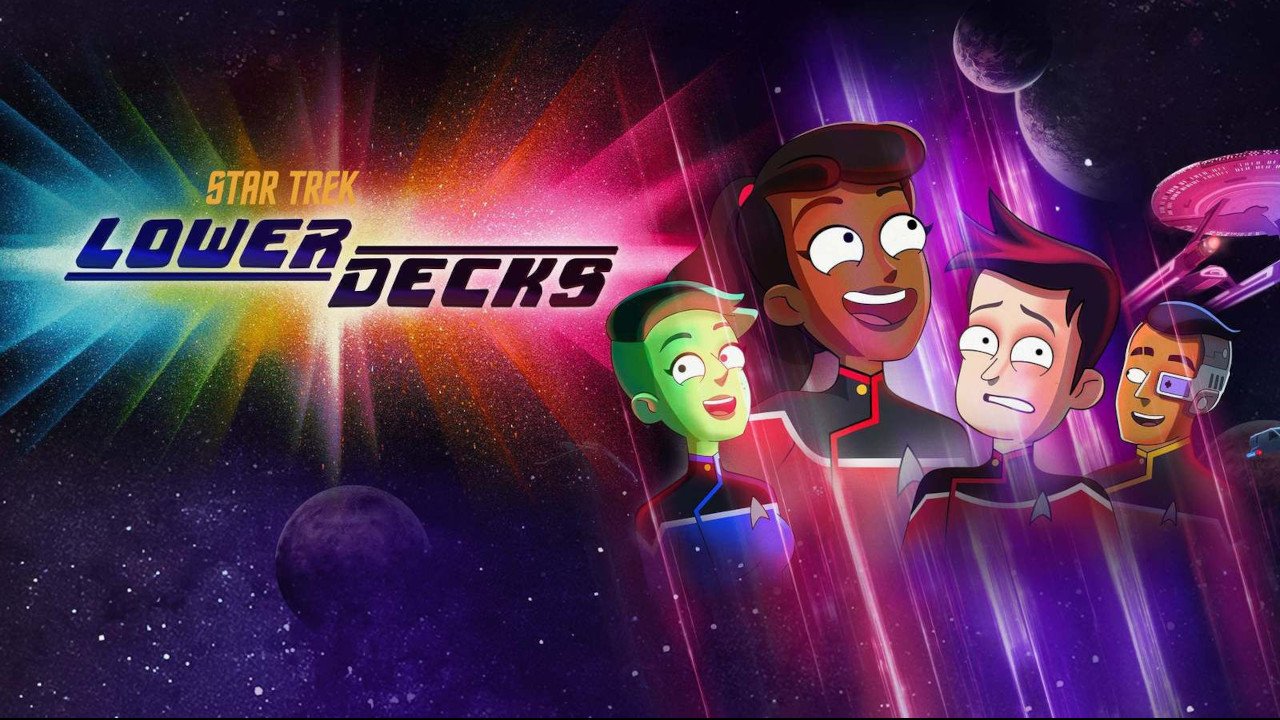


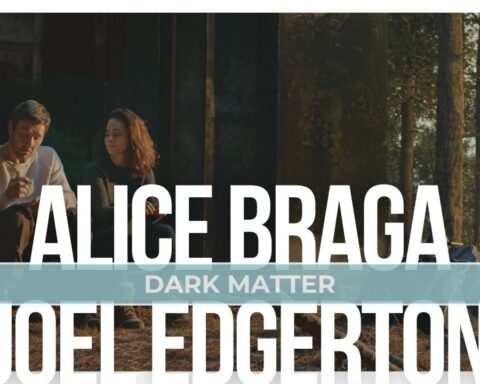


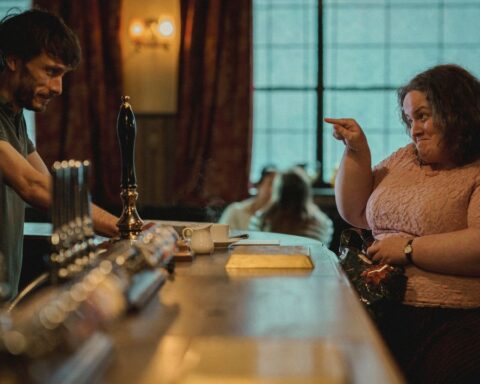
Follow Us